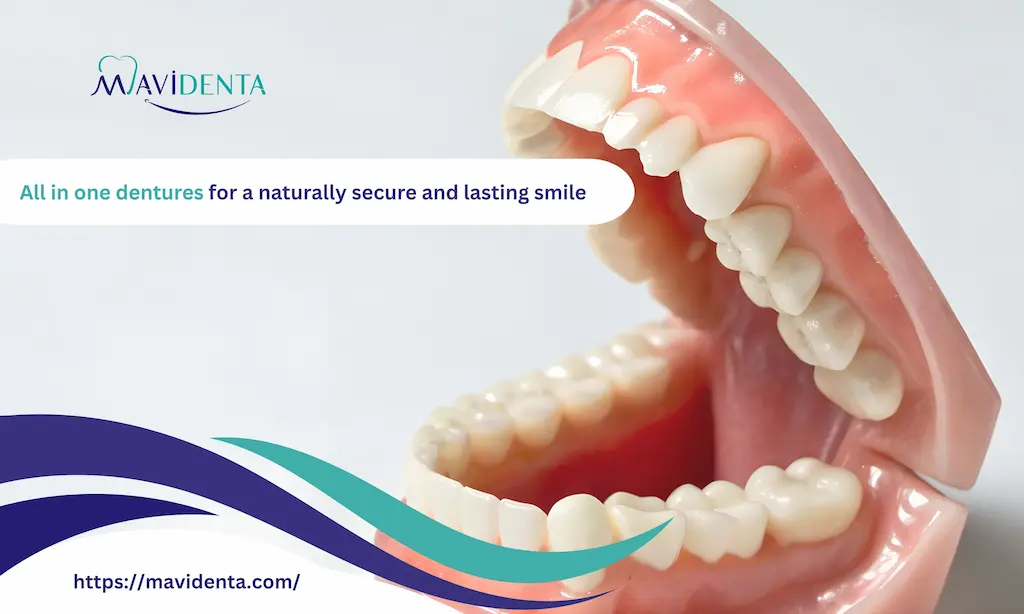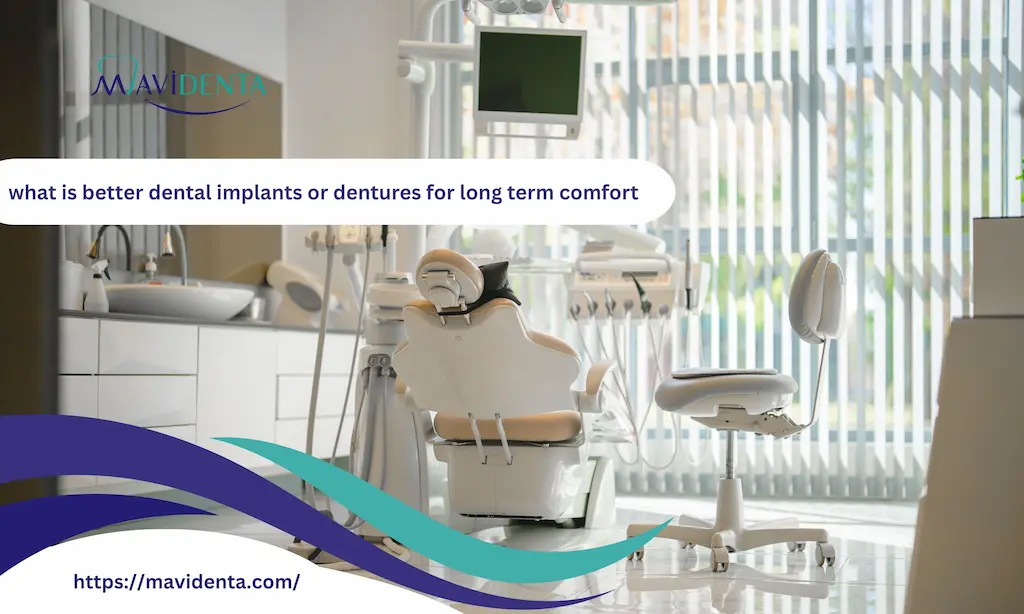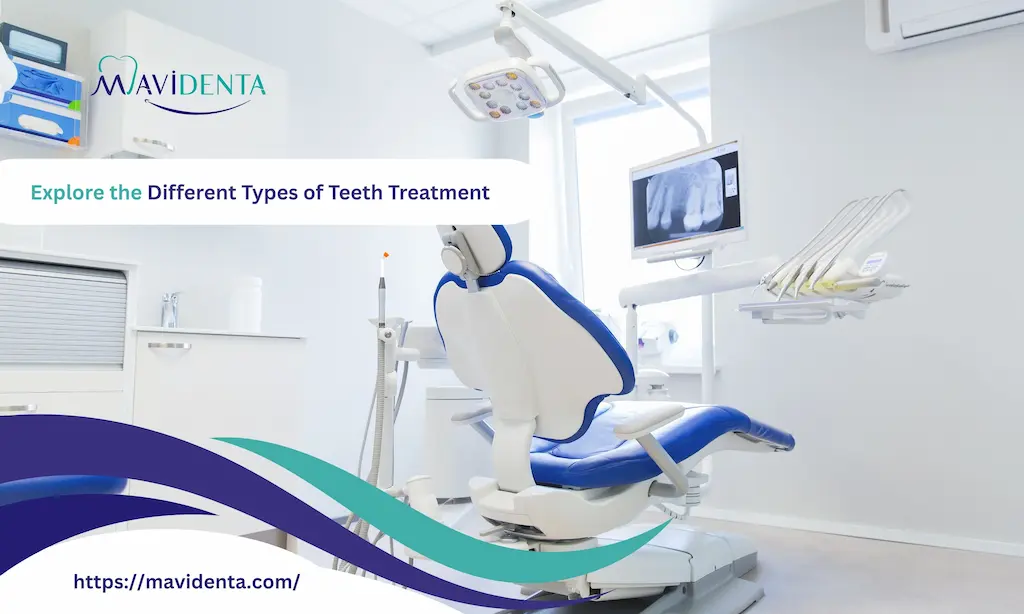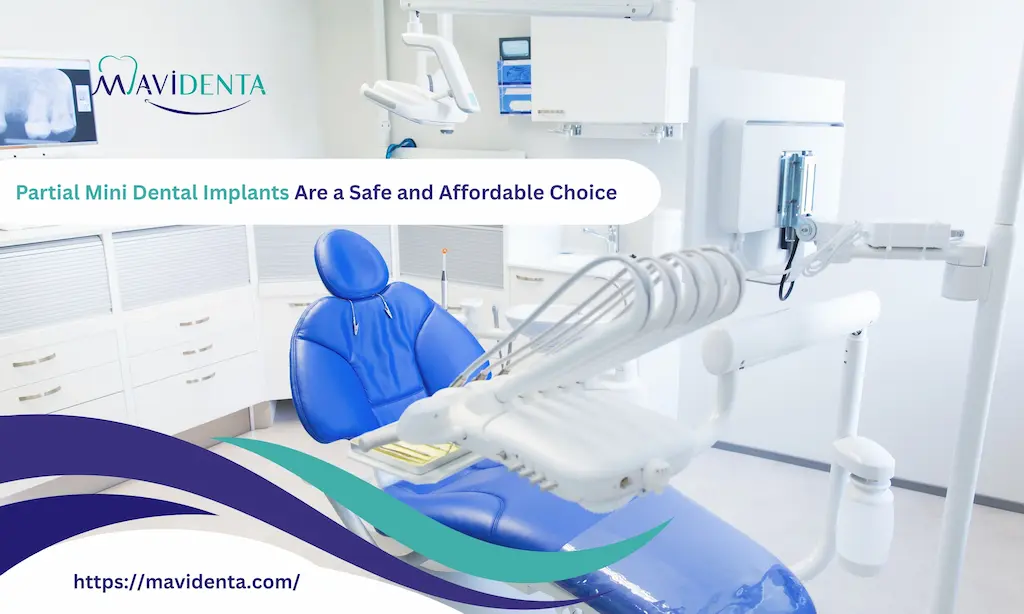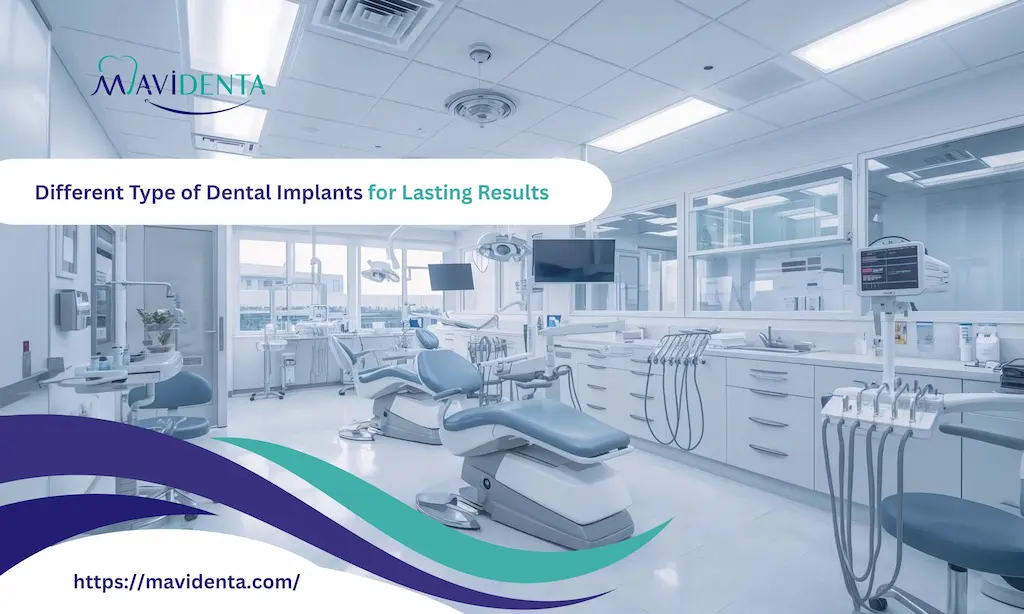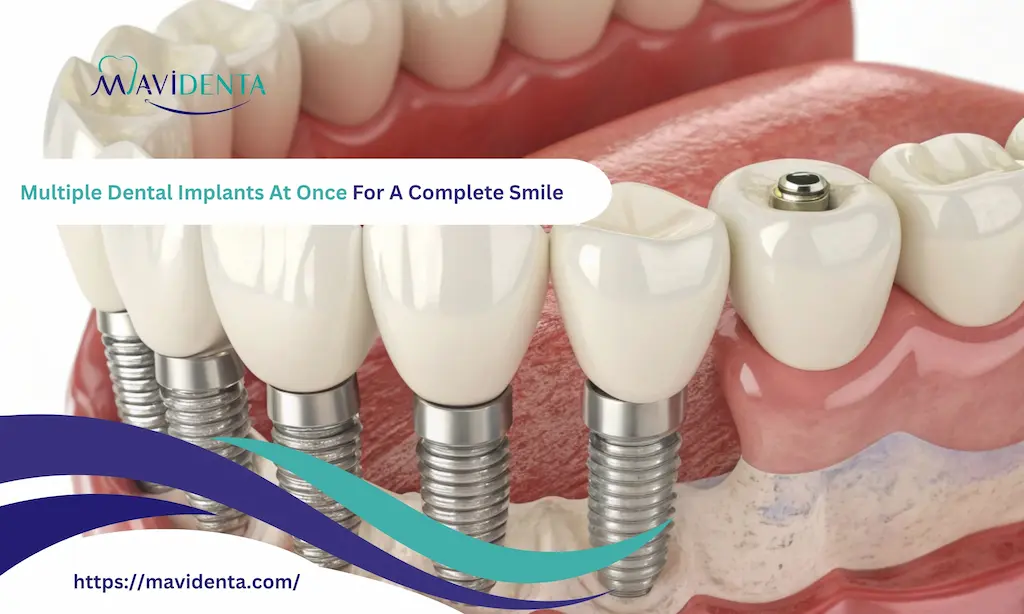Dental implants for the entire mouth are one of the latest and most effective alternative treatments that offer a permanent and effective replacement for missing teeth, especially for those suffering from total or near-total tooth loss.
They not only provide a natural appearance and a bright smile but also fully restore the mouth’s function in terms of chewing and speaking, which positively impacts an individual’s health and quality of life.
This technique relies on implanting a number of implants in the jaw to attach fixed dentures, providing stability and strength without the need to worry about traditional dentures slipping.
What are Full Mouth Implants?
Dental implants for the entire mouth are an advanced medical treatment used to replace all missing teeth in the upper or lower jaw, or both. This is done by placing a number of metal implants (usually made of titanium) within the jawbone, followed by the installation of fixed dentures or bridges supported by these implants.
Instead of placing an implant for each missing tooth, which can be costly and surgically complex, a limited number of implants (usually 4 to 8 in each jaw) are placed in a calculated manner to support a full denture. This approach is sometimes known as “All-on-4” or “All-on-6”, depending on the number of implants used.
Dental implants for the entire mouth offer several advantages over traditional removable dentures. They provide significant stability that is unaffected by eating and speaking, and they look and function so naturally that they feel like real teeth. They also help preserve jawbone function, a common problem after long-term tooth loss.
This technique is an excellent option for people who have lost most or all of their teeth due to severe gum disease, decay, accidents, or aging. Thanks to recent advances in dentistry, the procedure has become safer, less painful, and in some cases, new teeth can be replaced the same day.
Is it possible to have a full mouth of dental implants?
Yes, it is absolutely possible to receive a full mouth dental implant. This is one of the most advanced options available in modern dentistry to replace all missing teeth in the upper or lower jaw, or both.
Instead of placing one implant per tooth, doctors rely on a specific number of implants (usually 4 to 8 per jaw) to secure a fixed denture, giving the patient a natural smile and greater stability without the need for removable dentures.
This technique is suitable for people who have lost all their teeth due to aging, gum disease, severe decay, or accidents. Thanks to advances in implant technology, this type of treatment can be performed even in cases of weak jawbones, using techniques such as bone grafting or angled implants.
So yes, it is possible and very effective to receive a full mouth dental implant provided that the patient’s general health and oral condition are carefully evaluated by a specialist dentist.
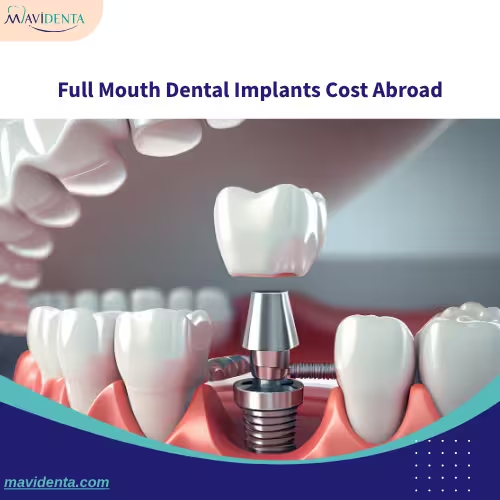
Advantages of dental implants for the entire mouth:-
1- Restoring the natural appearance of a smile:
Dental implants for the entire mouth give the appearance of a natural, complete smile, restoring self-confidence and giving the patient a bright, attractive smile.
2- Improving chewing and speaking skills:
Thanks to the high stability of implants, patients can eat normally without worrying about dentures slipping. Their ability to speak also improves compared to removable dentures.
3- Long-term stability:
Dental implants are permanently attached to the jawbone, making them more stable and comfortable than traditional dentures, which can shift or fall out during use.
4- Preserving the jawbone:
When teeth are lost, the jawbone begins to deteriorate due to the lack of natural stimulation. Dental implants stimulate bone growth and prevent bone loss over time.
5- Improved Quality of Life:
The patient regains a sense of comfort and confidence when speaking, eating, and smiling, which positively impacts their psychological and social well-being.
6- Permanent and Stable Solution:
With proper care, dental implants can last a lifetime, making them a long-term investment compared to temporary solutions.
7- No Required for Adhesives or Daily Removal:
Unlike removable dentures, implants do not need to be removed or secured with adhesives; they are a permanent part of the mouth.
8- Preserving Natural Facial Shape:
Tooth loss leads to sagging facial muscles and the appearance of signs of aging. Implants help support the face and maintain a youthful appearance.
9- Reduced Discomfort:
Dental implants for the entire mouth make a person feel like they are part of their mouth, not a foreign body, which reduces the discomfort caused by removable dentures.
What are the whole jaw dental implant treatment options?
Full jaw dental implants aim to replace all missing teeth in the upper or lower jaw (or both) using a limited number of implants that support a fixed or removable prosthesis. There are several treatment options that vary in technique, results, and price, the most important of which are:
1. All-on-4 technique:
This is one of the most popular options, where only four implants are placed in each jaw, positioned at an angle to support a fixed set of teeth. It is particularly used in cases of bone loss and is considered a practical solution in terms of cost and speed of completion.
2. All-on-6 or All-on-8 Technique:
These alternatives rely on six or eight implants in a single jaw to support a full dental bridge. They provide greater long-term stability and are typically used in cases with good bone density.
3. Implant-Supported Bridges:
In this option, a number of implants (usually between six and eight) are distributed to support a fixed bridge that covers the entire jaw. This method offers a balance between stability, function, and cost.
4. Implant-Supported Dentures:
This is an option that combines stability and flexibility, with a removable denture anchored to two to four implants. It can be easily removed and cleaned, and is less expensive than fixed dentures.
5. Individual Implants for Each Tooth:
In rare cases or for cosmetic reasons, an implant may be placed for each missing tooth. This is the most expensive and complex option, and is used only in specific cases.
Which is better, porcelain or acrylic teeth?
When choosing between porcelain and acrylic teeth, several factors should be taken into account, such as appearance, strength, price, and ease of use. Porcelain teeth are known for their high durability and very natural appearance.
They closely resemble natural teeth in color and shine, and are resistant to wear and stains, making them an excellent choice for those seeking a permanent and elegant solution.
However, they are more expensive and can be somewhat hard on the gums if not fitted properly. Acrylic teeth, on the other hand, are lighter and more flexible, making them a comfortable choice, especially for those with bone or gum problems.
They are also less expensive, making them suitable for temporary restorations or those on a modest budget. However, they are less resistant to wear and tear, and their color may change over time.
Ultimately, the best choice depends on your individual situation and your dentist’s recommendations, but in general, porcelain is preferred for those seeking long-lasting quality, while acrylic is more suitable for those looking for a practical and economical solution.
Explore the Difference Between Ceramic and Porcelain Dental Crowns.
Types of Full-Mouth Dental Implants:-
There are several types and techniques used for dental implants for the entire mouth, and the choice varies depending on the patient’s condition, bone density, budget, and the specialist’s recommendation. The most prominent types are:
1. All-on-4 Implants:
- This technique relies on the use of only four implants in each jaw to support a full set of dentures.
- The implants are placed at an angle to achieve maximum stability, even in cases of weak bone.
- It is considered a popular and relatively economical option.
- Temporary teeth are often placed on the same day.
2. All-on-6 Implants:
- Similar to the All-on-4 technique, but uses six implants per jaw.
- It provides stronger support and greater stability, especially for people who need to withstand higher chewing forces.
3. Single Dental Implants for Each Missing Tooth:
- In this technique, an implant is placed for each missing tooth, followed by a crown.
- It is one of the most precise options in terms of appearance and function, but it is more expensive and requires more time.
4. Implant-Supported Bridges:
- Several implants (for example, 6–8) are placed to support bridges that cover the entire jaw.
5. Implant-Retained Dentures:
- Several implants (usually 2–4) are used to hold a removable denture in place.
- The denture can be removed for cleaning, but remains securely in place throughout the day.
- This is a cost-effective option, especially for older patients.
6. Bone Graft + Implants:
- In some cases, a patient may require bone grafting prior to implant placement due to significant bone loss.
- This method is used to successfully prepare the jaws for full-mouth dental implants.
Explore All on 4 vs All on 6 Dental Implants.
Choosing the Right Full-Mouth Dental Implants for You:-
Choosing the right type of dental implants for the entire mouth is a decision that directly impacts your comfort, oral function, and quality of daily life. Because each patient has a different oral and health condition, the optimal solution varies from person to person. Here are the most important factors to help you make the right decision:
1. Jawbone Assessment:
- Before choosing the type of implant, the doctor evaluates the jawbone density using a 3D CBCT scan.
2. Budget Available:
- The cost of implants varies depending on the technique used and the number of implants.
- Denture-supported implants, or All-on-4s, are less expensive.
- Single implants for each tooth are more expensive but more precise and natural-looking.
3. Daily Comfort and Personal Requirements:
- If you are looking for a permanent, fixed solution that mimics natural teeth, fixed implants (such as All-on-6s or implant-supported bridges) are best.
- If you prefer the ability to remove teeth for cleaning or are elderly, implant-supported dentures may be more appropriate.
4. Final Aesthetics:
If you are highly concerned about aesthetic appearance (especially in the smile area), you may prefer individual implant techniques that allow for the customization of the shape and color of each individual tooth.
Is It Cheaper To Get Dental Implants Abroad?
How long do full-mouth implants last?
Dental implants for the entire mouth are considered a long-term solution that provides the patient with stability and function very similar to that of their original teeth. Metal implants, often made of titanium, are among the hardest materials and can last between 20 and 30 years, and in many cases, a lifetime if properly cared for.
Artificial teeth placed over implants, such as crowns, bridges, or fixed dentures, typically last between 10 and 15 years and may require replacement or maintenance depending on use and oral condition.
The lifespan of dental implants also depends on several factors, most notably daily oral hygiene, regular follow-up visits to the dentist, and avoiding bad habits such as smoking or excessive pressure on the teeth. The patient’s general health condition, such as diabetes or immune problems, may also affect the success and longevity of the implant.
Therefore, dental implants for the entire mouth are a long-term investment in health and quality of life, providing patients with comfort and confidence that will last for years if properly cared for.
How Long Does Dental Implants Last?
How Many Implants Are Required for Full-Mouth Tooth Replacement?
The number of implants required to replace dental implants for the entire mouth isn’t determined by the number of original teeth. It depends on the type of technique used and the patient’s jawbone condition. In most cases, an individual doesn’t need an implant for every missing tooth; rather, a small number of implants are sufficient to support a full row of artificial teeth.
For example, the “All-on-4” technique uses only four implants in each jaw to secure a fixed denture and is one of the most popular and cost-effective options. The “All-on-6” technique uses six implants in each jaw and provides greater support and additional stability, especially if the bone density is good.
In some special cases, the dentist may resort to using implant-supported bridges. These implants are distributed across each jaw to secure a full bridge, achieving a good balance between durability and cost.
Individual implants for each missing tooth are rarely used in full-mouth implant procedures due to the high cost and large number of implants required. A person may require more than 14 implants in a single jaw, which is uncommon.
Accordingly, the number of implants required for a full jaw typically ranges between 4 and 8. The dentist determines this based on the condition of the bone, pressure distribution, and the desire for a long-lasting functional and aesthetic result.
How You Prepare:-
Preparing for comprehensive dental implants is a crucial step that significantly contributes to the completion of the procedure and your well-being during and after treatment. It requires collaboration between you and your dentist to ensure the best possible outcome. Here are the steps for comprehensive preparation:
1. Initial Consultation and Comprehensive Examination:
The first step is to visit a specialist dentist for a thorough examination of the mouth and teeth. The dentist will:
- Taking panoramic and 3D CBCT images to assess the condition of the jawbone.
- Review your complete medical history, such as any chronic conditions (such as diabetes or heart disease).
- Discuss your options and determine the most appropriate technique for your case.
2. Prepare a detailed treatment plan:
Based on the examination, your doctor will develop a customized treatment plan, including:
- Number of implants required.
- Type of final restoration (fixed or removable).
- If you need bone grafting before the procedure.
3. Improve your overall health:
Before the procedure, you must ensure that you are in good health. You may be asked to:
- Regulate your blood sugar levels if you have diabetes.
- Quit smoking for a sufficient period of time, as it affects bone healing.
- Temporarily avoid certain medications (such as blood thinners) under your doctor’s supervision.
What you can expect?
When undergoing a dental implants procedure for the entire mouth, it’s common to wonder what to expect before, during, and after the procedure. Here’s a comprehensive and simplified overview of what to expect at each stage:
Before the procedure:
- Consultations and tests: You will undergo thorough examinations, including 3D x-rays and blood tests, to assess your health.
- Personalized treatment plan: Your doctor will explain the number of implants required, the type of implants suitable for you, and the procedure schedule.
- Pre-surgery instructions: You may be asked to fast for a few hours or temporarily stop taking certain medications.
During the procedure:
- Local or general anesthesia: Depending on your condition and the doctor’s comfort, the procedure will be performed under anesthesia to avoid any pain.
- Implant placement: Your doctor will place metal implants in your jawbone, temporarily securing teeth or a temporary denture (in some cases).
- Procedure duration: It typically takes two to four hours for each jaw.
- Mild swelling and pain: Mild pain or swelling is normal during the first few days and is treated with painkillers prescribed by your doctor.
- Follow-up: You will need periodic visits to monitor bone healing and ensure the implants are stable.
- Final Prosthesis: After 3 to 6 months (after osseointegration), the final fixed denture is fitted, which looks and functions just like natural teeth.
What is a Dental Implant Made Of?
How much do full-mouth dental implants cost in Turkey?
The cost of dental implants for the entire mouth in Turkey varies according to several criteria, but it remains one of the most economical options compared to European and Gulf countries. On average, prices for the All-on-4 procedure start from approximately €3,500 to €6,000 per jaw, while the All-on-6 procedure ranges from €5,000 to €8,000.
If a larger number of implants are used (e.g, 8 or more in each jaw), the total cost can reach €10,000 to €15,000 or more for the entire mouth. These prices often include comprehensive treatment packages that include consultation and examinations, 3D imaging, surgery, temporary and permanent prostheses, and sometimes even accommodation and transportation.
The final cost depends on the type of implants used (Swiss, German, Turkish), the materials used to make the teeth (such as zirconia or porcelain), the experience of the dentist, and the clinic’s reputation. Despite all these variables, Turkey remains an excellent destination for those seeking high-quality dental implants at an affordable cost.
All On 4 Vs All On 6 Cost: Unveiling the Price Difference.
Why Mavidenta Is the Best Choice for Entire-Mouth Dental Implants?
The entire mouth dental implants offered by Mavidenta is not just a routine dental procedure; it is a comprehensive treatment experience specifically designed to permanently and naturally restore your smile and oral function.
This service utilizes advanced technologies such as 3D digital implant systems and automated surgical planning, ensuring high accuracy in implant placement and reducing procedure and recovery time.
Mavidenta also uses the highest quality implants, which are strong and long-lasting, making them an ideal solution for people who have lost most or all of their teeth.
Furthermore, the service allows patients to achieve a permanent, stable smile without the need for removable dentures, enhancing their quality of life and self-confidence.
This service is supervised by a team of dental implant specialists, who provide a personalized consultation and treatment plan for each case, with close post-implant follow-up to ensure a high success rate.
Conclusion
Dental implants for the entire mouth represent a true breakthrough in dentistry, combining aesthetics, function, and durability. With medical and technological advances, this procedure has become safer and more effective, making it an ideal choice for anyone seeking a lasting, healthy smile and a better quality of life. So, if you suffer from complete tooth loss, dental implants may be the first step toward restoring your confidence and daily comfort
FAQ
What is the purpose of full-mouth dental implants?
It is a procedure in which all missing teeth in the upper or lower jaw (or both) are replaced using multiple implants that support a fixed or removable denture.
How many implants are required per jaw?
Typically, 4 to 8 implants are used per jaw, depending on the technique used and bone density.
Can anyone have full-mouth implants?
Not always. The patient must be in good general health and have adequate bone density. If the bone is weak, the doctor may use a bone graft.
What is the difference between All-on-4 and All-on-6?
All-on-4 uses only four implants per jaw and is considered less expensive, while All-on-6 provides greater stability and support using six implants.
Do the implants look natural?
Yes, modern restorations resemble natural teeth in form and function, especially when using porcelain or zirconia.
How long do full-thickness dental implants last?
They can last for more than 15-20 years or a lifetime, provided proper oral hygiene is maintained.


